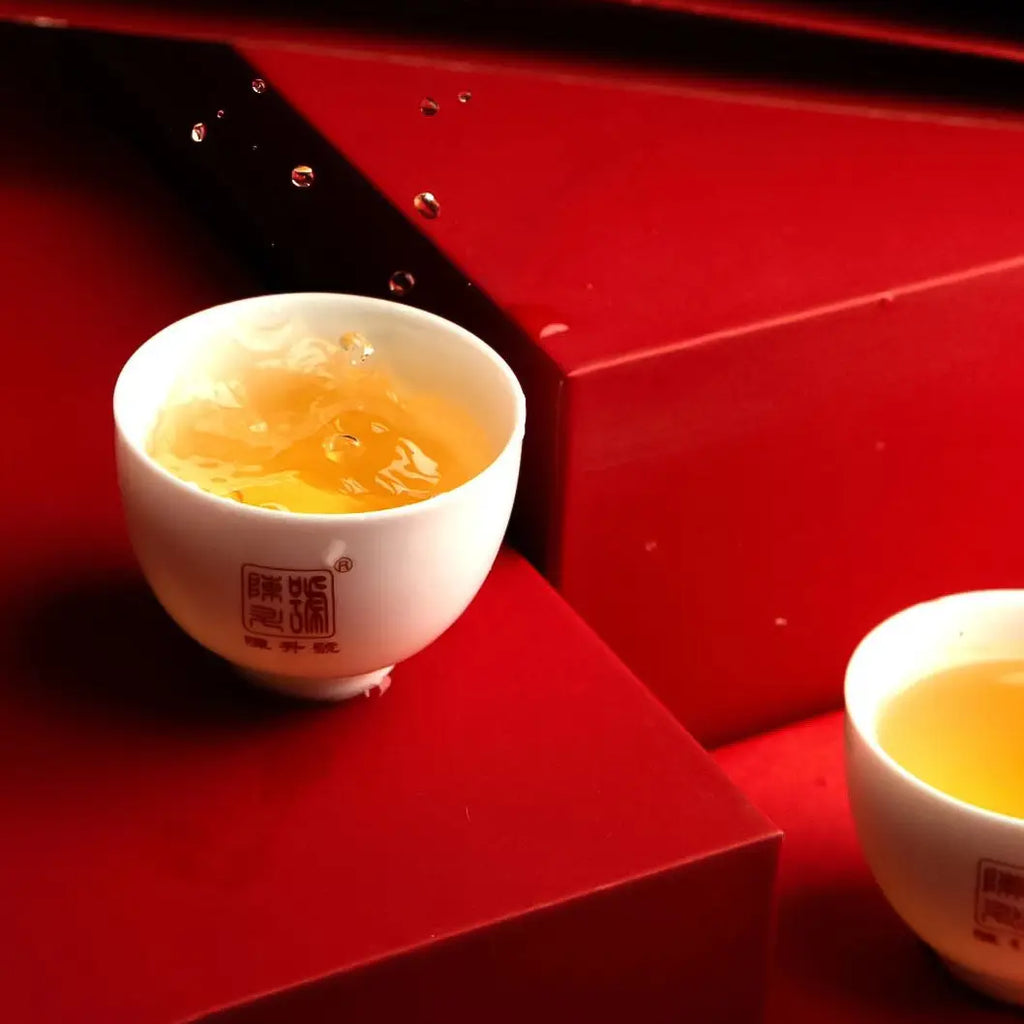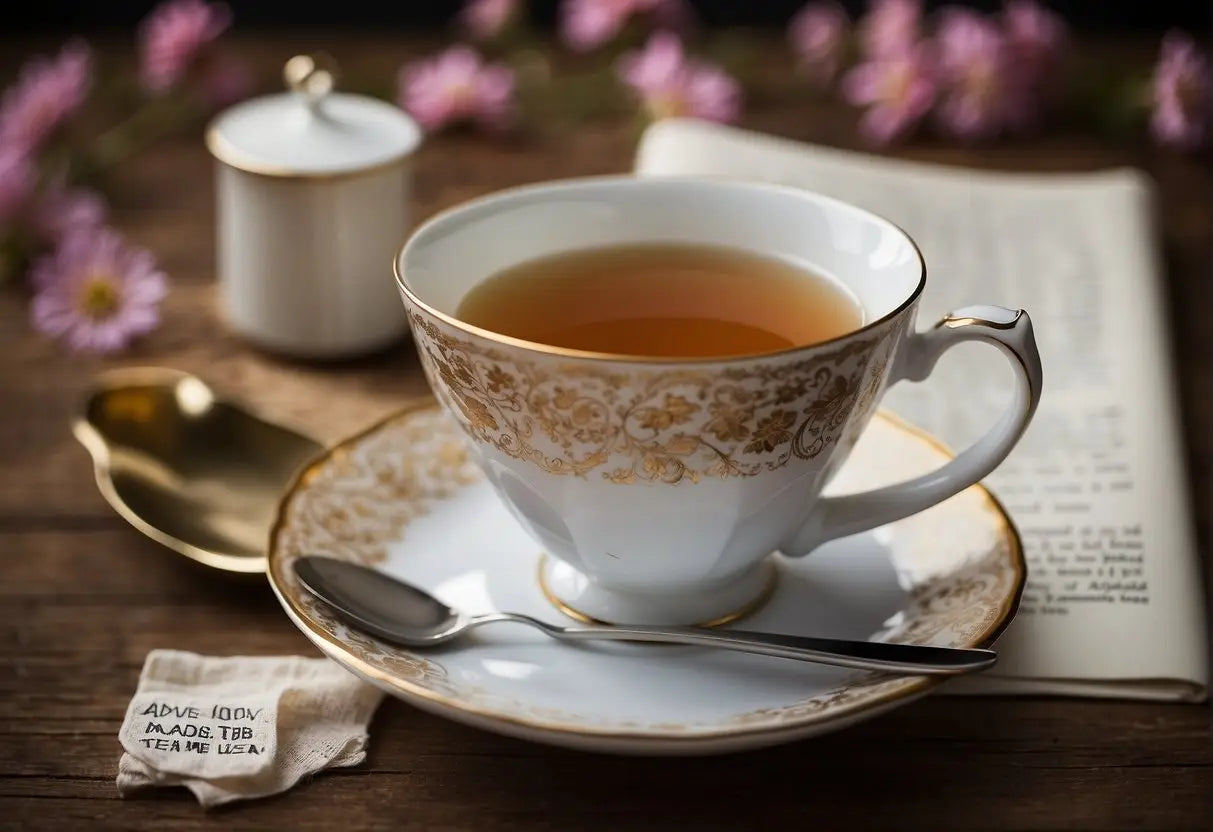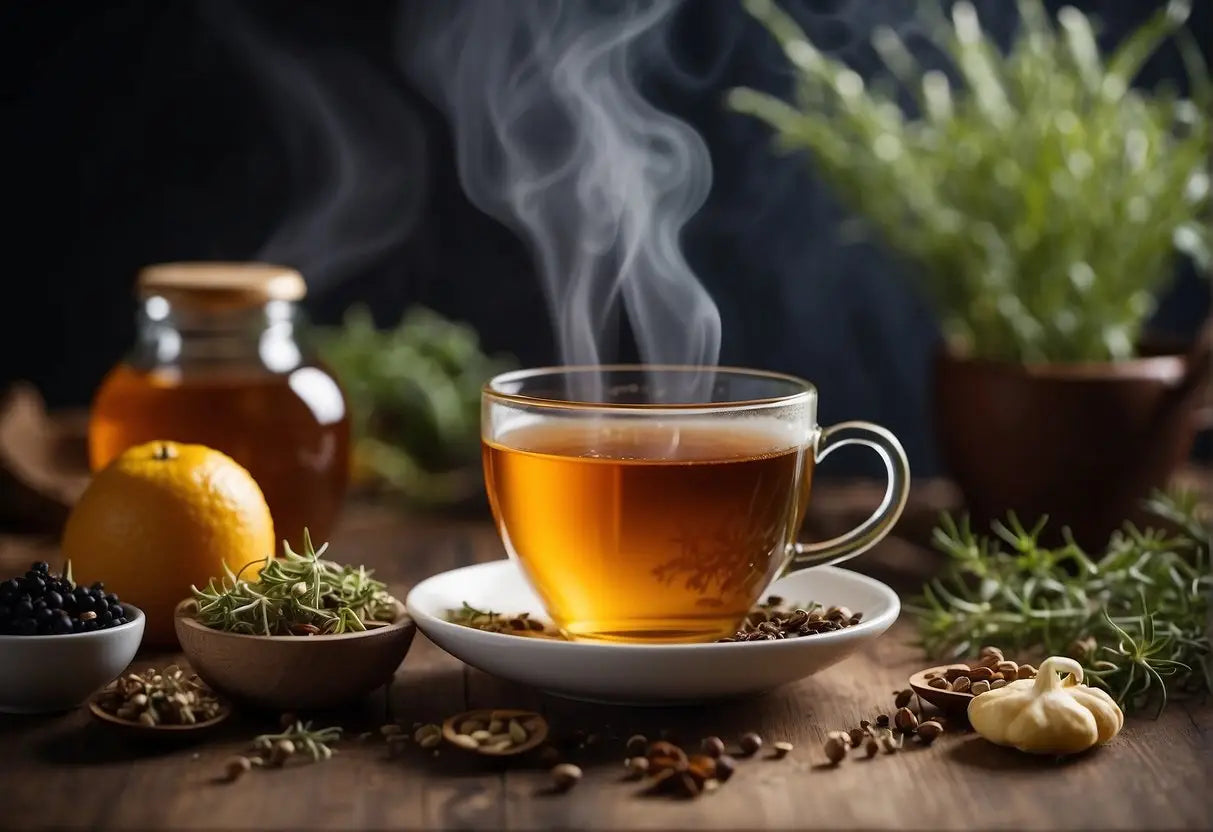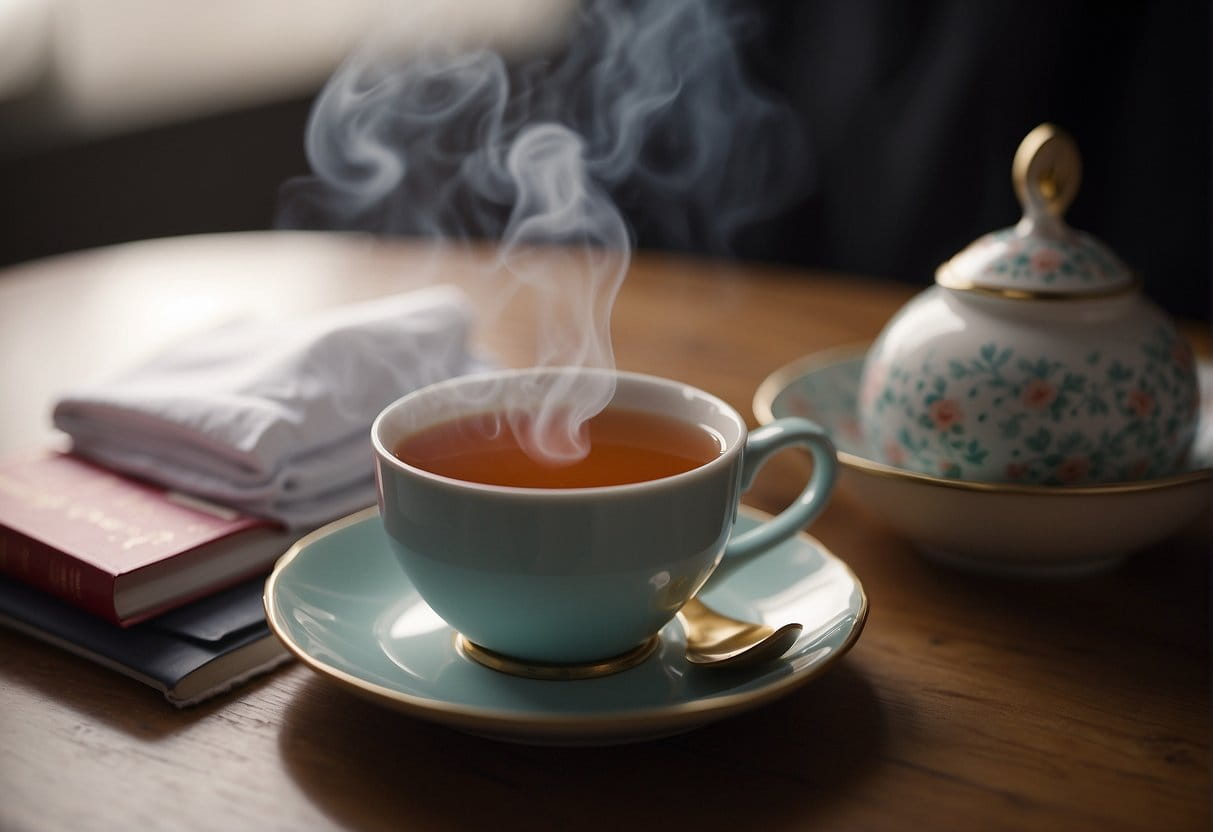Why You Should Not Drink Tea During Menstruation
Shop our Pu Erh Tea collections!
Menstruation is a natural biological process that you, as a woman, experience, signaling part of the reproductive cycle. Each month, your body prepares for pregnancy, and if no pregnancy occurs, the uterus sheds its lining, resulting in menstrual flow.
Cycle Duration:
Bestsellers
- Typically, your cycle lasts from 28 to 35 days, but it can vary.
Hormones Involved:
- The menstrual cycle is regulated by hormones like estrogen and progesterone.
- Changes in hormone levels can affect your body and mood.
| Phase | Duration | Description |
|---|---|---|
| Menstrual Phase | 3-7 days | Uterine lining sheds, causing bleeding. |
| Follicular Phase | ~14 days (until ovulation) | The body prepares new eggs. |
| Ovulation Phase | Mid-cycle | An egg is released from the ovary. |
| Luteal Phase | ~14 days | Body prepares for potential pregnancy. |
During menstruation, you may experience several symptoms:
- Menstrual cramps (dysmenorrhea) can cause discomfort.
- Bloating and weight gain are common due to hormonal changes.
- Mood swings might occur, often linked to fluctuating hormone levels.
It's crucial to maintain good hygiene and remain attentive to any significant changes in your menstrual cycle. If you experience heavy bleeding, severe pain, or an irregular cycle, consult a healthcare provider.
Check out our Sheng pu erh tea collection and Ripe pu erh tea collection.
Effects of Tea on the Body

Tea impacts your body in various ways, particularly through its caffeine content and diuretic effects, which are important to consider during menstruation.
Caffeine Content
Tea contains caffeine, a stimulant that can affect your central nervous system. On average, black tea has about 47 mg of caffeine per cup, while green tea contains about 28 mg per cup. During menstruation, caffeine can contribute to increased tension, and anxiety, and may lead to sleep disturbances if consumed in large quantities. Monitoring your caffeine intake is recommended to avoid exacerbating these symptoms.
| Type of Tea | Caffeine Content per Cup (Approx.) |
|---|---|
| Black Tea | 47 mg |
| Green Tea | 28 mg |
| Herbal Tea | 0 mg |
Diuretic Impact
Tea has diuretic properties, which means it can increase the rate of urine production. This diuretic effect can lead to more frequent urination, potentially resulting in the loss of important minerals like sodium and potassium. During menstruation, maintaining mineral balance is crucial, as imbalances can lead to cramps and discomfort.
- Pay attention to:
- Increased urination
- Mineral depletion
Nutritional Considerations During Menstruation

During menstruation, your body undergoes significant changes that necessitate specific nutritional adjustments. Prioritizing iron levels and hydration needs can help manage symptoms and maintain overall health.
Iron Levels
Your menstrual cycle can lead to the loss of iron-rich blood, putting you at risk of lower iron levels. To combat potential iron deficiency, you should consider incorporating iron-rich foods into your diet. Here are foods high in iron:
- Red meat: a 100g serving contains about 2.7mg of iron.
- Leafy greens: one cup of cooked spinach has approximately 6.4mg of iron.
- Legumes: a cup of lentils offers about 6.6mg of iron.
Supplementation might be necessary for some individuals, but it is essential to consult with a healthcare provider before starting any new supplements.
Hydration Needs
Staying well-hydrated is crucial during menstruation as changes in hormones can affect your body's water balance. Increased hydration can help alleviate bloating and reduce water retention. Here are hydration guidelines:
Lao Ban Zhang
- Water intake: aim for 8-10 glasses (about 2 liters) of water daily.
- Limit caffeine: it can contribute to dehydration, so it's prudent to reduce beverages like coffee and tea.
- Herbal infusions: consider non-caffeinated options such as herbal teas to maintain fluid intake.
Tea Types and Menstrual Health
Selecting the right type of tea during your menstrual cycle can impact your comfort and health. Specific teas have different effects on the body that can either alleviate or exacerbate menstrual symptoms.
Herbal Teas
Herbal teas, such as chamomile or peppermint, are often recommended for menstrual discomfort because they do not contain caffeine. Consuming caffeine can exacerbate menstrual symptoms like breast tenderness and increase anxiety. Chamomile tea is known for its calming properties that can help soothe cramps and reduce stress, while Peppermint tea may alleviate headaches and digestive issues. However, some herbal teas, like licorice or fennel, can act like estrogen in the body, potentially affecting hormonal balance during menstruation.
- Chamomile: Soothes cramps, reduces stress
- Peppermint: Eases headaches, improves digestion
Non-Herbal Teas
Non-herbal teas, primarily derived from the Camellia sinensis plant, contain varying levels of caffeine. Your body's tolerance for caffeine may decrease during menstruation, and it can contribute to increased heart rate and insomnia. Black tea and green tea, for example, contain higher caffeine levels which might lead to increased menstrual discomfort.
- Black Tea: High caffeine, may increase discomfort
- Green Tea: Contains caffeine, might affect sleep
Limiting non-herbal teas during your menstrual cycle could help manage symptoms more effectively. Consider opting for decaffeinated versions or caffeine-free herbal alternatives to support your menstrual health.
Possible Benefits of Tea

When considering tea consumption during menstruation, it's important to acknowledge the potential benefits it may offer. Tea contains compounds which can be soothing and beneficial for your health.
Antioxidants: Teas, particularly green tea, are rich in antioxidants like polyphenols. These can help in protecting your cells from damage.
- Relaxation: Theanine, an amino acid found in tea, may promote relaxation and help in managing stress.
Caffeine: Some teas have lower caffeine levels compared to coffee, providing a gentler boost in energy without severe jitters.
- Comfort: A warm cup of tea can provide comforting warmth that may help to ease menstrual discomfort.
Hydration: Herbal teas, being caffeine-free, can contribute to your daily hydration needs.
Remember, individual responses to consuming tea during menstruation can vary, so monitor your body's reactions closely.
Best Practices for Menstrual Health

During menstruation, maintaining optimal health requires attention to both your diet and lifestyle choices. It is advised to stay hydrated; however, certain beverages like caffeinated tea may not be beneficial for all individuals.
Hydration:
Ensure adequate fluid intake but consider choosing herbal teas or water over caffeinated options to avoid potential dehydration and increased cramps.
Nutrition:
Focus on a balanced diet rich in iron and magnesium to replenish lost nutrients.
- Iron: Spinach, lentils, red meat
- Magnesium: Almonds, bananas, dark chocolate
Exercise:
Gentle activities like yoga and walking can alleviate cramps and improve mood.
Rest:
Prioritize sleep. Aim for 7-9 hours to help your body recover.
Stress Management:
Engage in stress-reducing practices such as deep breathing or meditation to lower cortisol levels, which may otherwise exacerbate menstrual symptoms.
Heat Therapy:
Use a warm compress or heating pad on your abdomen to ease discomfort.
Avoid Certain Substances:
Limit or avoid alcohol, as well as high-sodium foods, which can contribute to bloating and water retention. Caffeinated teas, for some, may exacerbate menstrual symptoms, although the evidence is not conclusive for all individuals.
Listen to Your Body:
Everyone's experience with menstruation is unique, so it’s important to pay attention to how yours responds to different foods and beverages and adjust accordingly.
Frequently Asked Questions
In this section, you'll find focused answers to common concerns about tea consumption during menstruation.
What are the potential impacts of consuming green tea on menstrual flow?
Green tea contains caffeine and tannins, which can potentially lead to a heavier flow and increased menstrual discomfort for some individuals.
Are there any adverse effects of drinking tea when experiencing menstrual cramps?
Yes, some teas, especially those high in caffeine, can exacerbate menstrual cramps and cause dehydration, which might worsen your overall discomfort.
Is ginger tea beneficial for managing symptoms during menstruation?
Ginger tea may help alleviate some menstrual symptoms such as bloating and cramps due to its anti-inflammatory properties.
Which types of tea are recommended for alleviating period discomfort?
Herbal teas, particularly those with anti-inflammatory or antispasmodic properties like chamomile or peppermint, may help relieve period discomfort.
What should be avoided in terms of beverages during a menstrual cycle?
You should avoid beverages with high levels of caffeine or sugar, as they can increase tension, bloating, and interfere with your sleep.
Does the intake of milk tea have any particular effects during a period?
Milk tea can contribute to bloating and exacerbate symptoms of lactose intolerance if present, potentially causing discomfort during menstruation.
← Older post Newer post →











